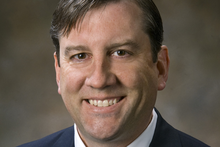
Excerpt from The Chronicle of Higher Education
The emails came often enough for Thomas L. Traynor to save a generic response on his computer: Dear _____, your suspicions are correct. The journal to which you’ve submitted is a fraud.
Years ago, Traynor, an interim dean and economics professor at Wright State University, learned that a journal was misusing his name online. On its website, the International Journal of Humanities and Social Science lists a range of scholars, including Traynor, on its editorial and international advisory boards.
But Traynor and other supposed board members contacted by The Chronicle said they’ve never been associated with the publication, nor did they grant it permission to use their names. A few have spent years attempting and failing to correct it. All the while, emails have trickled in to their inboxes from disgruntled submitters of papers, asking where their money went or why the edits were so paltry.
Predatory publishers — those that shirk rigorous peer review, seek out inexperienced researchers, and levy fees for authors to publish their own work — are nothing new. More than 400,000 papers have found homes in questionable journals, according to a Finnish researcher whose estimate was reported in The Economist.
Tales of scholars who have been snookered by unscrupulous publishers are commonly told. But the International Journal of Humanities and Social Science has claimed another set of victims: Professors who say their names and clout have been poached.
The scholar listed as "chief editor" even created a web page to distance herself from the journal and warn readers against sending it money or manuscripts. Despite her attempts at search-engine optimization — note the URL — it hasn’t entirely worked. Google her name, Joan Sabrina Mims-Cox, and her biography on the journal’s website appears prominently in the search results. Mims-Cox, who was a professor of education at California State University at Los Angeles, died in May. As of Wednesday, her name still is atop the page on which the international journal lists its editorial board.)
Traynor said he emailed the journal repeatedly demanding that it take down his name. It promised action, he said, but never followed through. He broached the issue with Wright State’s legal counsel, who didn’t want to get involved, Traynor said.
So Traynor drafted a letter to send the 30 or so people who had contacted him over the years, typically voicing suspicions that their submissions hadn’t been peer-reviewed. Some worried about wiring payment to Bangladesh, where the journal’s publisher, the Center for Promoting Ideas, appears to be based. (The center lists in its portfolio a passel of other publications as well, including the International Journal of Business and Social Science and the Journal of Education & Social Policy.) Other submitters were simply ignored by the journal after they paid up.
Anyone who actually wired money "should know better," Traynor said. Just look at the publisher’s name. It sounds "naïvely nonacademic," he said. Scholars who proceed despite such evidence are "participating, to some degree," by looking the other way, he said.
Still, it’s clear some people either didn’t know or didn’t care that the journal and its publisher looked dodgy. It churned out a volume every month, at a minimum, from January 2011 to May 2018.

